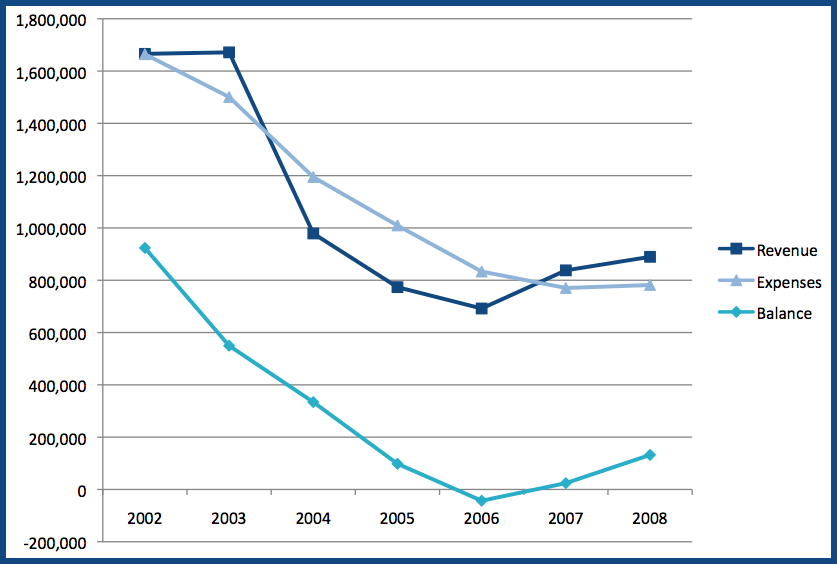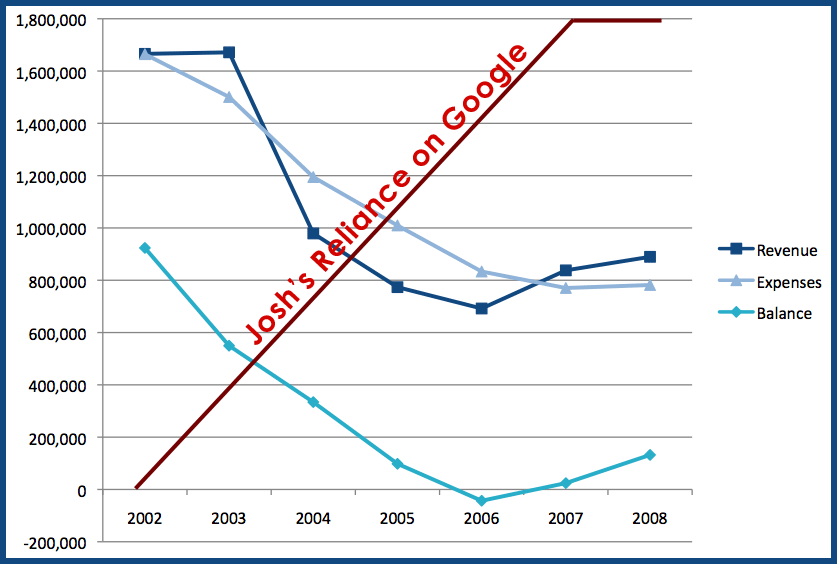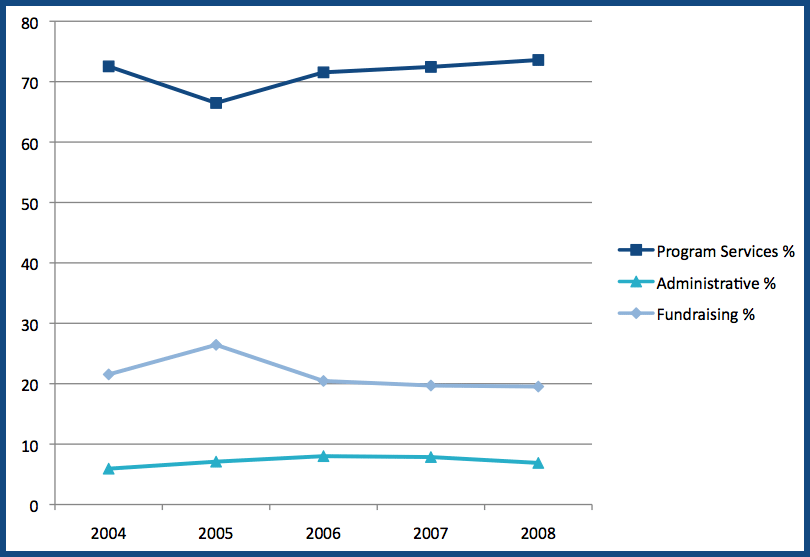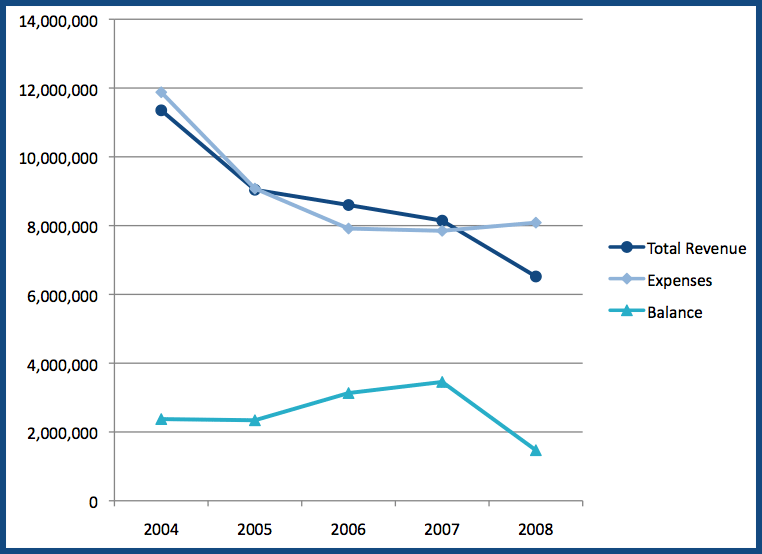Obama just put a big sign on this country that basically tells all the criminals that we might have a gun, but don’t worry, we won’t use it. Â Our nuclear arsenal is a deterrent, and part of its power of deterrence is your enemy not really being sure under what circumstances you would and wouldn’t use it. The irony is it would actually make the need to use nuclear weapons more likely, rather than less. I wonder whether President Obama makes a habit of walking into poker games, announcing beforehand which hands he will and will not play.
Year: 2010
Obama the Gun Salesman
We’ve all seen the jokes about how Obama is “salesman” of the year for most gun shops in the country. We’ve seen the consistent reports about high gun sales since mid-2008. We’ve felt our wallets grow lighter due to higher prices caused by this short supply. The ammo shelves, while not bare anymore, hasn’t exactly been flush in the last few years. Primers? Heh, good luck because reloading didn’t even save folks from the surge in demand.
But how is this for perspective: All of the top 10 months for NICs checks – save two – have been since it became obvious that Obama would win the election.
November 2008 1,529,635
- Notable Event: Obama Election
December 2008 1,523,426
- Notable Event: More of the nation realizing the new president’s buddies are former terrorists.
December 2009 1,407,155
- Notable Event: It’s Christmas & Obama is still president.
March 2009 1,345,096
- Notable Event: Eric Holder announces renewed push for gun bans.
March 2010 1,300,100
- Notable Event: Pelosi announces she no longer expects to hold actual “votes” in Congress anymore.
February 2009 1,259,078
- Notable Event: January’s paycheck went to pay off all of the holiday gift bills. Holiday gifts included many guns & stockings full of ammo, as shown by the 2nd highest NICS month.
December 2006 1,253,840
- Notable Event: Democrats take back the House of Representatives & Nancy Pelosi is announced as Speaker-elect in the weeks after the election.
December 1999 1,253,354
- Notable Event: I have absolutely no idea. The only thing I can figure out is that it was about this time that media attention was shifting to Al Gore’s candidacy and the start of the Democratic primaries. (I don’t remember December of 1999 too well. I was in college & I had mono that month. I drank until finals, crammed until I flew home, and then slept for the rest of the month.)
February 2010 1,243,211
- Notable Event: Obama is still president, and he really starts to twist the arms on health care. Many to start to wonder what is next on his agenda.
October 2009 1,233,982
- Notable Event: Obama is still president.
Thanks to NSSF for this data. Â I love random facts. Â If any of you can think of other notable events in these months (or in the few days before the month) that might have influenced sales, feel free to add them in the comments.
UN Filing Trace Requests?
According to NSSF, apparently the UN believes they have lawful authority to demand manufacturers turn over information about guns they have sold. Manufacturers and Dealers are required to run trace requests at the request of their regulating agency, which is the ATF. The UN is not the H&K USA’s regulating agency, last I checked; all they can do is ask nicely. If you look at the PDF of the UN request, you will note in the bottom right corner a request to “Please Recycle” which is exactly what I’d do with this “trace request” if I were the manufacturer.
More L&S Ordinances
NRA is alerting on Baldwin Borough as the next jurisdiction considering Lost and Stolen, which is in Western Pennsylvania, near Pittsburgh. CeaseFire PA and MAIG had concentrated their resources here in the Southeast recently, so now it looks like we’re seeing some action in the western part of the state again. It should be noted that the Mayor of Baldwin Borough is a member of MAIG, which has been the case with most towns that take up these illegal ordinances.
Turning to the VPC
I decided to look at the VPC finances to see how they were doing. The last time I checked them out was nearly 3 years ago! How could I have let so much time pass without checking in our pals Josh and Kristen? Only this time, I think the only way to fully express their situation is in a graph.
You can actually see Josh drove them in the hole to the tune of more than $40,000 in 2006. I guess that’s when Helmke drew all the gun control donations back to the Brady Campaign. At the end of 2008, the reserves he has built back up are still less than his salary for one year. Between 2002 and 2008, their reserves are down by 86% and revenues are down by 47%. What board of directors allows this to go on? I can’t fathom that any leader of any organization I’ve worked with would be allowed to stay on if they delivered the same kind of performance. Regardless, lead on, Josh! Heckuva job!
Even with this very handy overview of their finances, it doesn’t tell the real story of VPC’s changes over the years. For that, I realize we needed one more data point. So I fixed it.
The Gun Culture
Michael Bane has a very excellent post on where the shooting culture has gone, and how the industry has consistently still remained stuck in a hunting mentality. He talks about a suggestion he made here:
In a white paper several years back I argued for a 2-tier recruitment and retention system for the industry and the culture. My argument was that for newcomers participation in formal and informal shooting sports faced 1 major barrier, purchase of a firearm, while participation in hunting had 2 major barriers, purchase of a firearm and killing an animal. Rather than pour huge amounts of money into a 2-barrier jump hunter recruitment with what amounted to very low success rates, I suggested we put the lions’ share of the money into recruitment for target shooting (both formal and informal), focusing on self-defense as the primary driver, and get them past Barrier 1. THEN create a mentoring system — which has been repeatedly shown to work very well — to introduce newcomers who got past the first barrier to the sport of hunting.
I think he’s essentially correct in this, and my experience, the second barrier to get into hunting is far far higher than the first. I am someone who would be willing to go exactly the path Michael is describing. I got into the shooting culture through the first path, and would be willing to make the second jump to hunting. The problem? You have to take hunters education to obtain a hunting license in most states, and hunters education is a multi-day course. Generally speaking you have to be willing to give up a weeknight and weekend day to complete it.
My time is not exactly plentiful, and this represents a fairly significant barrier for me, all things considering. Sure, maybe if I disrupting the blogging schedule for a few days, or took a few days off work, I could get it done. But my interest in hunting is pretty peripheral. I would like to try it, but I’m not driven to try it. But I can tell you for sure if I had not come into the shooting culture at all my interest would be pretty close to zero.
I could be pushed over the number two barrier, given sufficient motivation, which perhaps I will get at some point. I think Michael’s two part strategy is a reasonable one if the industry wants to keep hunting alive.
Newark’s Murder Free Month
I figure there will probably be some dopey gun control folks that will credit one-gun-a-month for Newark’s drop in crime, but this article from NJ.com suggests it was improved police methods that are responsible. Imagine that.
Surprisingly Steady
I’m not done crunching numbers with the Brady Campaign. And I have to give them some credit for remaining consistent in their spending given the tight times they’ve had over the last few years.
I was curious if the organization (or rather, organizations, since I examined both the Center and the Campaign together) would make cuts in any one particular area. Would they figure a way to cut fundraising costs, axe general management expenses, or chop programs? Other than the blip of 2005, they have actually been consistent in the percentage of their expenses that each of those categories eats.
That blip in 2005 showed they cut services to increase fundraising. This is rather interesting if you look back at a graph I already posted that showed their revenues for the same time.
See that bid drop off for 2005? That means that increasing the percentage of their expenses on fundraising didn’t actually stop the plunge in revenue. Regardless of the fact that fundraising surged to more than 25% of their expenses, their revenues dropped by more than 20%. Even though their revenues continued to fall, never by so much as 2005. That tells me they get more for their dollar by investing in programs rather than direct fundraising costs. Some other groups could learn a thing or two about that concept.
Happy Easter
Happy Easter everyone. I hope everyone gets to spend time with their families this holiday. I am unfortunately either battling a nasty cold, or a mild flu, so hopefully you’ll holiday will be better than mine. Even if I had an Easter Ham, I’m so stuffed up I couldn’t taste it anyway.
Kookery on Parade
Capitol Ideas is reporting that Governor Rendell is getting a letter demanding he restore the Constitution from a fringe group, or be removed from power. Restoring the Lost Constitution is the title of a pretty good book, and a subject I’m generally very much sympathetic to. But a look at this issue by Salon, and a visit to the group’s page by me has convinced me this is the kind of kookery America would be a very dull place without. I mean, all you have to do it go down to the copyright section in the footer:
Private non-negotiable freeholding, Guardians of the Free Republics. Private web site under non-corporate venue. This seal conveys immunity from public scrutiny, discretion, regulation or trespass. Trespassers beware. Co-claimant fee applies to impairment. By using this site agree to the Terms of this site.
That’s 100% pure Grade A crazy there folks. Go take a look at their youtube video. This sounds a lot like the admiralty court fun from tax protesters. The FBI is investigating, but I doubt they have much to worry about. This kind of thing has been around a long time, and these groups are mostly interested in drawing attention to their kookery, in hopes of finding fellow travelers, than they are about actual action.
Much of their language about “Federal Corporation of the United States” seems to hinge on this definition in the Judicial Procedure Code, which is in the chapter on collecting debts owed to United States. For purposes of debt collection, “United States”, which usually refers to the Federal Government in other contexts, is redefined to include Federal Corporations. They take this to mean that the United States is a corporation, acting unlawfully as the Federal Government. This isn’t a new idea, but it’s utter nonsense. An example of a federal corporation is Amtrak, and this section defines how Amtrak, as well as the Federal Government, may collect its debts.
Reading statutory language is a bit of a skill. It’s difficult for people with no legal training to figure out. I can’t say I understand it 100% of the time, but knowing computer languages is a pretty good basis for understanding law. In fact, that makes for a pretty good analogy. It would be kind of like if you handed someone who’s barely literate in computers some technical specifications, some 6502 assembly code, and told them they had to debug all this code because their lives depend on it. Some folks may actually be able to figure it out, and fix things. Others will never really understand it, but they will keep trying and stay in the game. Others are just going to get angry at the whole thing and proclaim the program and specs are rigged, and it’s only through “du jure” specifications and new assembly that we can make everything the way God intended it to be. I think a lot of this phenomena is exactly that kind of thing. These folks know the law has an important impact on their lives, so they try to understand it. Failing, they become angry and blame the system.




